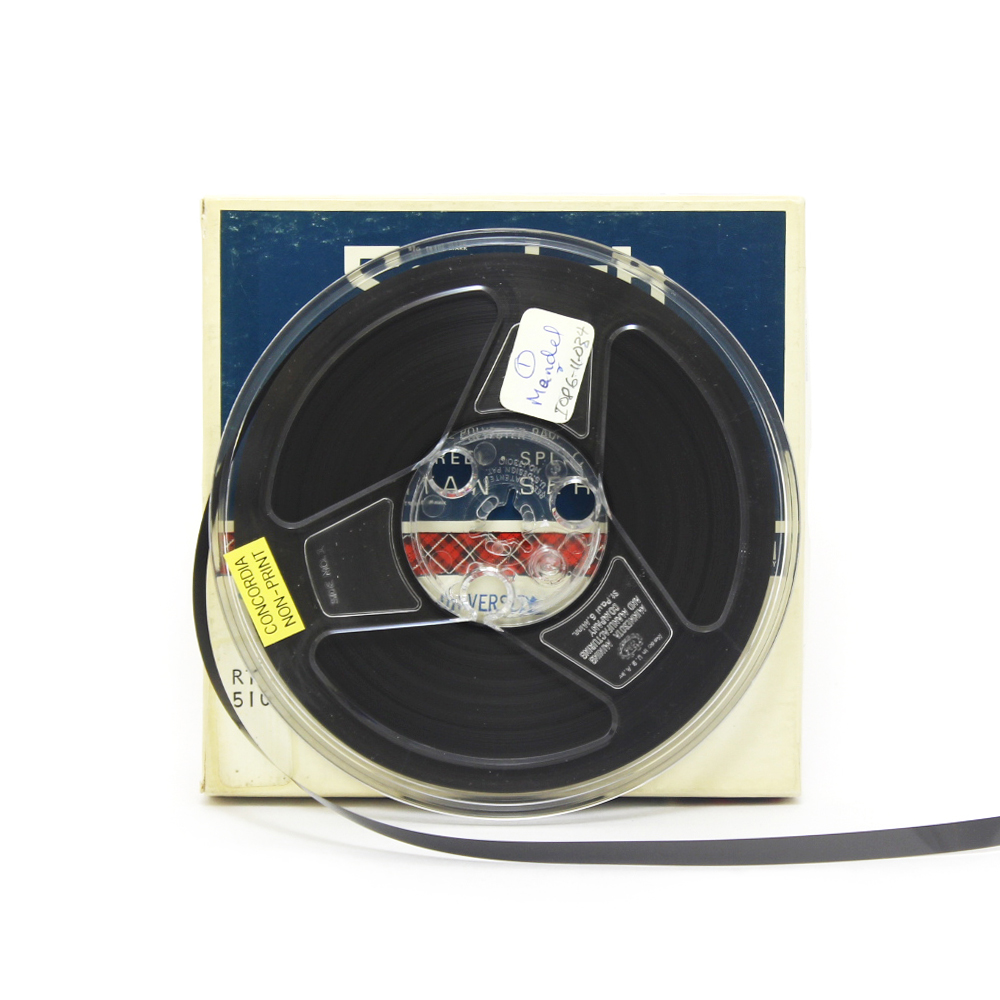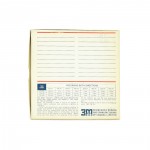George Bowering
00:00:00.00
...start with a poesy, I've been asked to announce that on Friday, ie. what's this the seventh? two weeks from tonight, March 21, 9 pm in room 653, Barnes Willing [?], there will be a program, I guess within the auspices of the Fine Arts department, the Ira Cohen, New York film maker, and poet will be showing three of his films, as far as I know for the first time in Montreal, that's two weeks tonight at 9 in 653. When I was asked to introduce Eli Mandel, and D.G. Jones, I said, 'that's ridiculous', Canadian poetry being the way it is, they already know each other. And after the moment of hilarity I was brought to my senses, and I began to think that it really did make a lot of sense that we do have Doug Jones and Eli Mandel reading on the same program, I can remember in 1961 when Poetry 62 came out, Canadian Poetry being the way it is, Poetry 62 was edited by Jean-Guy Pilon, I believe and Eli Mandel, being a bilingual book, and at the time the poem that struck me as the most interesting was the long poem by D.G. Jones, the most interesting in that anthology, and I therefore, felt kind of warm, without having them, to both of them to Doug's poem and Eli's great taste for putting it in the anthology. And then I thought that there was this kind of confluence going on and I began to see all kinds of other things happening too, for instance, they both had their first books published by Contact Press, that published the first books of most of the important Canadian poets, and they now have seen their careers sort of criss-cross one another in a kind of a funny way because they each have three books, except that Eli has three and a third, which is also kind of Canadian, and I thought it was kind of interesting because not only is there a kind of parallel going on, and they both in 1967, for instance, turned out very good books of poetry, but there's a kind of uh, they'll be kind of an interesting contrast I think in tonight's program because I've always considered that Doug Jones is sort of the best of the Ontario Wasp poets, and Eli Mandel is the best of the Western Jewish poets and they both deal with essential problems that seem to expose their two opposing and therefore contrary and conjugal, you might almost say, attitudes towards the business of writing poems. So we're going to start off with Eli's reading, and then have something like a ten minute break, and then we'll have Doug Jones' reading. I should mention that of those two books, Eli's is called An Idiot Joy and it shared the Governor General's award given in 1968, and published by Hertig, Edmonton Publisher who is very pleased to get the Governor General's award, and Doug Jones' book is Phrases from Orpheus, published by Oxford Press, two books that would be well worth investing both your heaven, forbid, money and your imagination upon. I'm probably not going to say anything before D.G. Jones comes to read, so I'm not expecting to come up here and spout for five or ten minutes before he reads and I'm not going to spout any longer before Eli reads. So I'd first like to introduce to you Mr. Eli Mandel.
Eli Mandel
00:05:08.69
I think George might have carried the parallel of contrasts and comparisons a little further had he wanted to, or chosen to, or had he known about certain very intimate details about Doug's life and my life. But I don't propose to go into those myself right now either. Instead, I'm going to read, primarily from An Idiot Joy, but also from Black and Secret Man, which was an earlier book and also from one or two manuscript poems that I've been working on recently. I want to start with a poem called "Signatures" and although I can say a lot about a number of poems that I've written, I'm not sure I can say much about this except that as will be obvious to you I think, the imagery is drawn from the Vietnam conflict, though I don't know that the poem is necessarily about that. Can you hear me with this mic? Some people at the back are saying 'no'. Can you hear me now?
Annotation
00:07:00.39
Reads "Signatures".
Eli Mandel
00:09:27.97
This poem is called "Neither Here Nor There".
Annotation
00:09:33.44
Reads "Neither Here Nor There".
Eli Mandel
00:10:28.68
This is a poem from Black and Secret Man and it's called "The Direction is North Until the Pole", and I suppose it's one of the few poems I've written that I would call a Canadian poem, that is to say it draws on a number of specific images from the Canadian landscape and therefore I have to annotate this poem, I have to tell you that the Fleming mentioned in the last line of the poem was once a Minister of Finance in the Federal Government, that just proves how transient political poems really are. I think all the rest of this should be clear, hockey is a game that's played in Canada.
Annotation
00:11:16.74
Reads "The Direction is North Until the Pole".
Eli Mandel
00:13:24.00
This is one of my prophetic poems, I think I've written a lot of really prophetic poems, this poem is called "Departure" and it tells about leaving Edmonton. Everybody who has read the poem believes that I wrote it when I decided to leave Edmonton, either for the first time or the second time, I've left there twice, as a matter of fact, I didn't write it when I decided to leave in Edmonton, I wrote it when I arrived in Edmonton.
Annotation
00:13:53.80
Reads "Departure".
Eli Mandel
00:14:37.13
A little poem about one of my perversions, this is about making love to pregnant women, I think, I'm not sure if there's a technical name for that but the perversion appears in the poem. The poem's called "Cassandra" and it's about a prophetess, Cassandra, you'll remember was the woman that Agamemnon brought home with him to his wife, Clytemnestra, and this, so angered Clytemnestra, aside from the fact that Agamemnon had killed one of their daughters, that she killed Agamemnon, but Cassandra was a Prophetess, like Prophetesses, was given the power to tell the truth and was never believed. Some of the imagery in this poem is taken from the story of Cassandra, and the rest from my perversions.
Annotation
00:15:39.76
Reads "Cassandra".
Annotation
00:17:00.37
Reads "The Madness of our Polity".
Eli Mandel
00:17:46.76
"Whence Cometh Our Help", the title is taken from the Psalms, and there are a number of images of the Psalms, in the poem. Or images from the Psalms.
Annotation
00:18:04.83
Reads "Whence Cometh Our Help".
Eli Mandel
00:19:03.67
This poem is called "Manner of Suicide", and it's the closest thing I've come to writing a found poem, in that all the material in the poem, the words are taken from two sources, except for the first line. One is Karl Mennenger's "Man Against Himself" and the other, "The Jewish Daily Prayer Book". There are twenty-six was listed here of committing suicide, they're all ways that Mennenger lists and documents, and he lists them in the order in which I give them here, and this list, which I give, is then followed by some comments he makes about those ways of committing suicide and a passage from the prayer book.
Annotation
00:20:11.98
Reads "Manner of Suicide".
Eli Mandel
00:23:24.21
In An Idiot Joy I wrote a number of poems which were, which used two primary images, the image of the moon and the image of the sea, and these are love poems, I suppose the interesting thing in them to me, aside from the personal sense that I feel about them, is that with each of the poems, whether it's with the image of the moon or the image of the sea, or both, I keep trying different technical things in the poetry, and so far as I'm concerned, I've done some more interesting technical things in this than anywhere else, but primarily, the poems talk about the moon and the sea, and sea birds and women and a woman.
Annotation
00:24:30.40
Reads "Woman in the Moon".
Annotation
00:26:12.32
Reads "The Explanations of the Moon".
Eli Mandel
00:27:32.85
This is one of the sea poems, in the sequence, called "Listen, the Sea". and the title comes from King Lear, though actually, I had become aware of it of course when I knew that Keats had written a sonnet using this, but the technique is neither Shakespearean nor Keatsean, nothing of the kind.
Annotation
00:28:00.25
Reads "Listen, the Sea".
Eli Mandel
00:29:01.01
And "Marina", who is a daughter of the sea.
Annotation
00:29:09.80
Reads "Marina".
Eli Mandel
00:30:46.39
Well something quite different. I think I should dedicate this to George Bowering, because I wrote the poem after I had been [CUT] and I would have to apologize for this, but the last thing in the world that I wanted to do was apologize, I'd prefer anything but that, I mean this is pretty simple-minded simplistic psychology, of the worst order I suppose, I just-- I'm writing a poem about how stupid I felt at that particular moment.
Annotation
00:31:17.44
Reads "The Apology".
Eli Mandel
00:34:34.76
This is the poem I like to think of as the one that one would put in a time capsule, it's called "Letter to be Opened Later" and presumably each one of us wants to immortalize oneself, and imagine, you know, two thousand years later the time capsule being opened and then they can read your letter, this is my letter, to be opened later.
Annotation
00:35:12.47
Reads "Letter to be Opened Later".
Eli Mandel
00:36:09.13
I'm going to read a lyric, it's a very short poem, but I'd like to read this one anyhow. It's called "To My Children" and it's based upon both an odd and rather terrifying coincidence in my life and a curious Jewish tradition. The Jewish tradition is that you name a child after the nearest dead relative, the relative who has died most recently and who is closest to one, and it so happened that my mother died, my daughter was born, my father died and my son was born. And I wrote this poem about the naming of the children. It's called "To My Children".
Annotation
00:37:08.19
Reads "To My Children".
Eli Mandel
00:38:00.41
Now I'm going to finish this reading with two poems, one is called "The Meaning of the I Ching" and the other "Cosmos: the Giant Rose"-- three poems, I'm sorry I'm going to read "Pictures in an Institution" as well. "The Meaning of the I Ching", the I Ching as you probably know is a book of divination, it's the oldest book of divination known, and when I first heard about it, I looked at the book before I opened it and I wondered about the very simple notion of a book that old telling my future, how could I be contained in this ancient book? and I wrote this poem. Now it seems to me that there is something remarkable here, it's one claim I will make for the poem, at least, in the poem, is the first time I used the phrase "earth upon earth" and the very first hexagram that I cast when I opened the book, the book tells fortunes with what are called hexagrams and hexagrams are given various names, the very first one that I cast was the hexagram "earth upon earth" and that's simply something that happened whether it means that the poem is prophetic or magical, I don't know.
Annotation
00:39:36.25
Reads "The Meaning of the I Ching".
Eli Mandel
00:43:18.67
I'm going to finish now reading "Pictures in an Institution". This is the most personal poem I've ever written, and I don't want to read anything after that, so I'm going to finish with this. "Pictures in an Institution". I think all I need to say about this is that it plays off notices against some personal experiences and I think that'll be plain enough.
Annotation
00:43:43.11
Reads "Pictures in an Institution".
George Bowering
00:47:47.75
I'd like to help you welcome now, D.G. Jones.
D.G. Jones
00:48:35.56
I'm going to do this because I'm thirsty. It's a little disturbing but I've had a suspicion that this was becoming true for some time, in the last few years, that pretty soon you won't be able to tell the Jew from the Wasp, anyway. It's getting more disconcerting all the time how similar certain things are between me and Eli Mandel. I just hope he's a very good person and lives a long life and has great success in the future. [laughter.] The main thing I want to read tonight is a little bit like Eli's last poem. [laughter] But it takes a lot more time to get itself said, for good or ill, and I'd like to read a few, a couple shorter poems anyway, before starting that longer poem which takes up a fair amount of the time. I'll read the first book, I mean...[laughter], I'll read the first poem from the book which old oriental George Bowering told you about at the beginning of the program. This poem's called "The Perishing Bird".
Annotation
00:51:12.86
Reads "The Perishing Bird".
D.G. Jones
00:53:16.01
A poem called "Summer is a Poem by Auden"
Annotation
00:53:34.09
Reads "Summer is a Poem by Auden".
D.G. Jones
00:54:41.47
Well, this reads well. It starts with a latin title, it's a kind of letter, actually written in reply to a letter to somebody who accused me of being rather complaisant when ironically enough, I felt anything but that at that time. Accused me of being one of the people who didn't have any troubles in life, or not only me but somebody else too, when we had quite a few of our own that were not too dissimilar from those that the other person was talking about. It's about marriage. It's called, to avoid looking too obvious, "De Profundis Conjugii Vox et Responsum". It's a serious poem though, more or less.
Annotation
00:55:56.67
Reads "De Profundis Conjugii Vox et Responsum"
Annotation
01:01:57.14
END OF RECORDING
(Please see I006-11-043.2 for full D.G. Jones reading).




